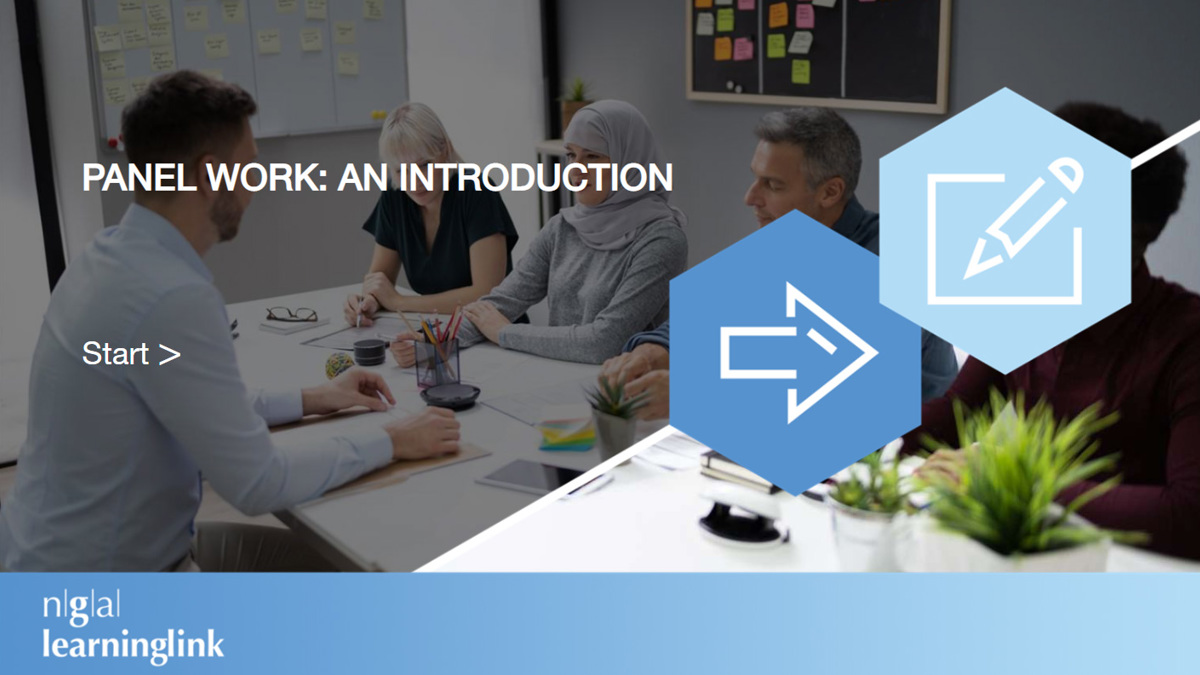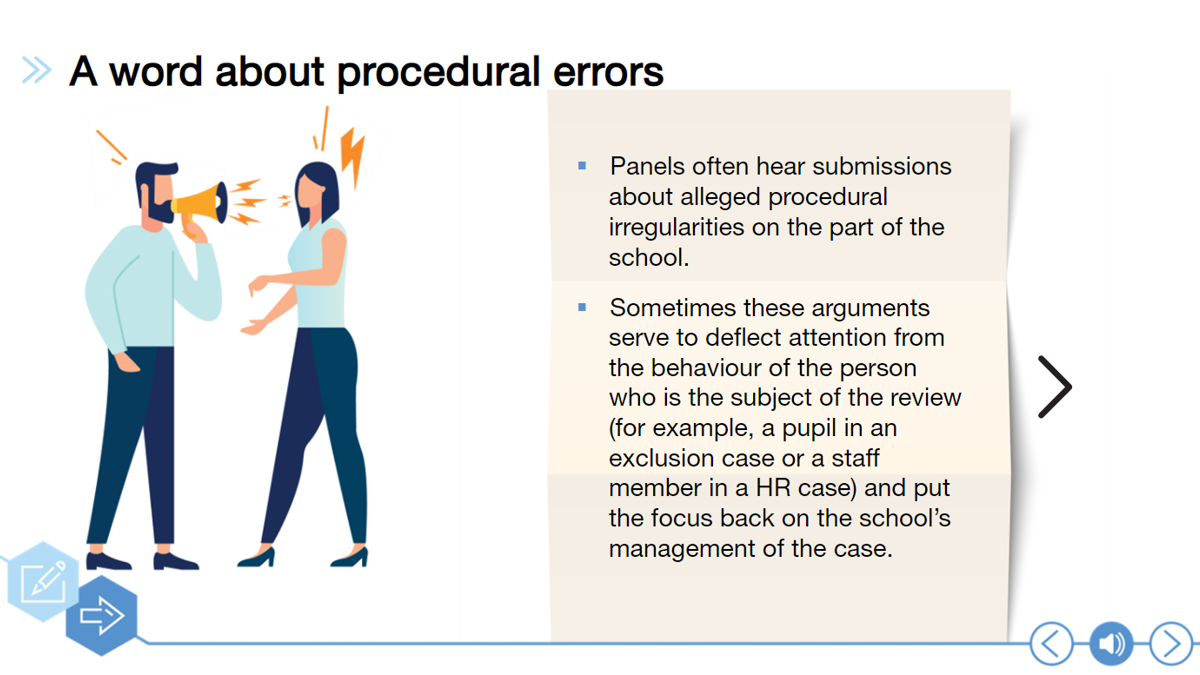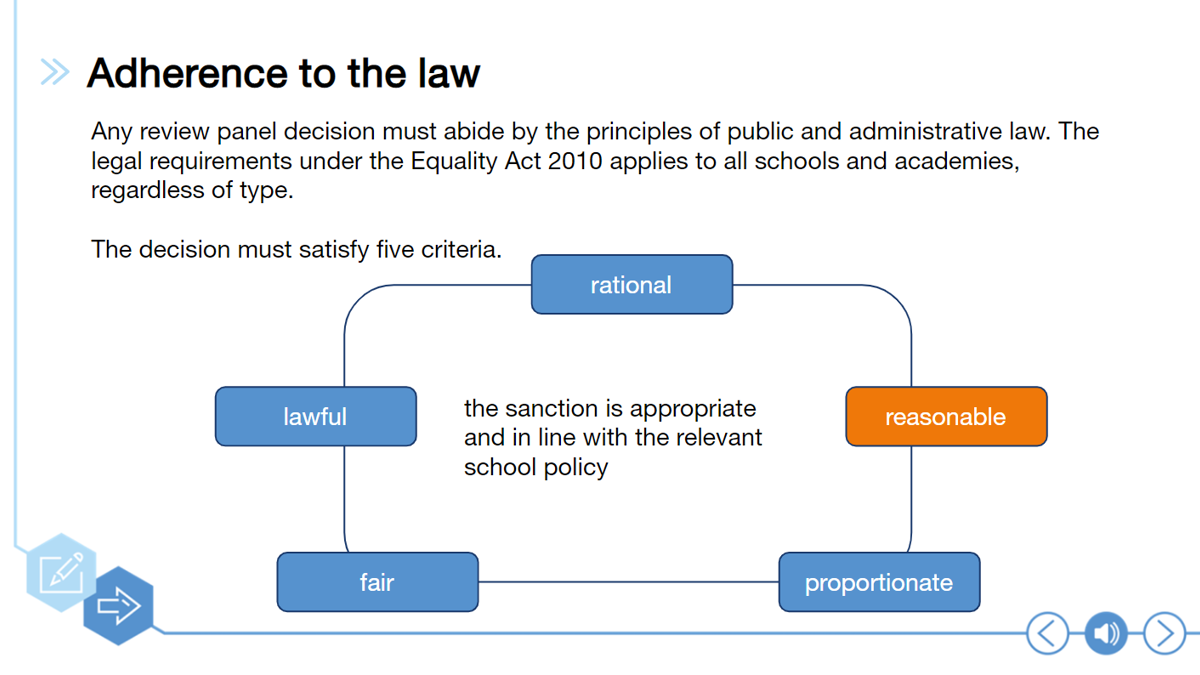
At a glance
This programme aims to give governors, trustees, and governance professionals an understanding and approach which can apply to any of the varied types of governance panel. It is part of our advanced practice programme for governance professionals.
You will cover:
10 minutes
Module description
Panel work: an introduction
Getting panel work right is an important aspect of governance. A poorly organised panel meeting with unsuitable, untrained panel members, late or missing paperwork, poor understanding and application of the relevant law and regulation is unlikely to lead to a good decision, respected by all. It will also leave parties, clerk or panel member with a bad impression of how the process works.
This module provides a general introduction to the typical process of panel work for all types of panel. It provides practical, informed guidance as to what governors and trustees and the clerk need to do at all stages of the process from identifying the relevant regulatory framework, selecting the right panel, conducting the meeting itself all the way to understanding how to approach the making and communication of the decision.
Programme modules:
Before you begin
It would be helpful for you to have completed:
Learning Link
Start this programme
Learning Link subscribers
Log in to access this module or create an account.
Not yet subscribed?
Sign up for a free trial or purchase a subscription.
Preview slides
Who developed this programme?

Paul Aber
Head of Training Development
Paul leads and manages NGA’s face-to-face training, e-learning and development programmes. This includes recruiting, training and managing NGA’s team of consultants and trainers. Paul has many years’ experience of governance, including in maintained schools and academy trusts.

Michael Barton
Head of Advocacy and External Affairs
Michael specialises in trust governance, co-ordinating NGA's work with multi-academy trusts and producing tailored resources. He also leads NGA's work in the West Midlands, working closely with the region's trusts and local authorities.

Claire Mitchell
NGA Consultant
Claire is an NGA consultant, delivers sessions for NGA Training, and facilitates on the NGA Leading Governance development programmes for chairs and clerks. Claire is passionate about supporting trustees and governors in their volunteer roles, and has a wealth of experience working in academy and maintained school settings. Claire has over a decade of experience within education and skills and has held a number of senior leadership roles within education, including managing ESFA funded learning provision in excess of £10 million for 150+ education and skills providers. Claire also has experience as a designated safeguarding lead.

Erica Wilson
NGA Consultant
Erica is an NGA consultant, delivering training and facilitating the Leading Governance development programme for clerks. Erica trained as a local authority clerk and has been an independent clerk since 2013 and has worked with local authorities and academy trusts, developing and delivering training to clerks. She has extensive experience of clerking panels, disciplinary investigations and has served as a school governor herself.















